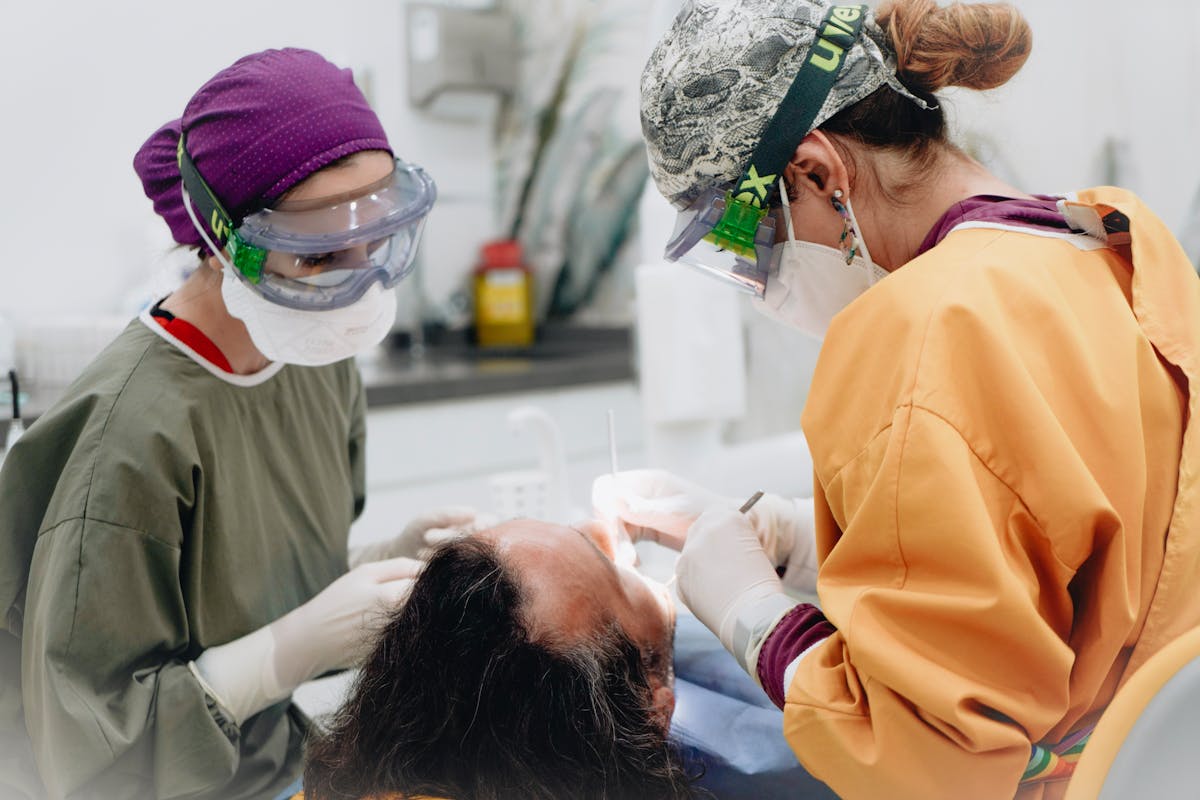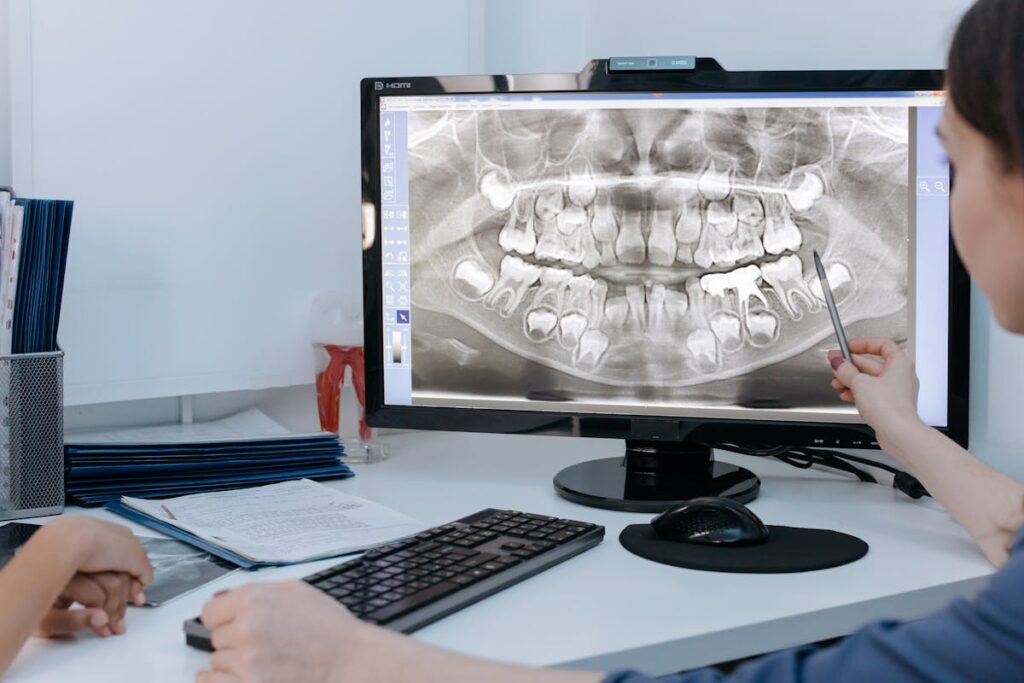The topic of wisdom tooth removal stands at the intersection of oral health and personal decision-making, warranting an in-depth discussion. A significant number of individuals grapple with the quandary of whether to proceed with extraction immediately or wait until complications arise. While some may argue in favor of immediate action to circumvent potential issues, others may advocate for a more patient, wait-and-see approach. Steering through this complex issue necessitates a careful weighing of the risks, benefits, and personal circumstances, inviting further exploration into this multifaceted dental dilemma.
Understanding Wisdom Teeth
Often referred to as “third molars,” wisdom teeth are the last set of teeth that emerge in a person’s mouth, typically appearing in our late teens or early twenties. Wisdom tooth development is a fascinating aspect of dental anatomy which has prompted much study and discussion among dental professionals.
In the process of wisdom tooth development, these teeth usually emerge horizontally or at various angles in the jaw, often not fully aligned with the rest of our teeth. This misalignment can result in numerous dental issues, including crowding or potential damage to adjacent teeth. However, it’s essential to recognize that not everyone develops third molars, and for some who do, they might not experience any complications.
The dental anatomy associated with wisdom teeth is complex. It encompasses not only the structure of these teeth but also their relationship with the surrounding tissue, nerves, and other teeth. This complexity makes understanding wisdom teeth a challenging yet critical part of dental health.
Decisions related to wisdom teeth, such as whether to extract them, should always be made with a thorough understanding of their development and anatomy. This knowledge allows for informed decisions that prioritize overall oral health.
Signs You Need Extraction
While wisdom teeth can sometimes grow in without causing any issues, there are several telltale signs that may suggest the need for extraction. These include pain indicators such as persistent discomfort or a throbbing sensation in the back of the mouth, particularly around the area where the wisdom teeth are growing. This pain can often be severe, and may even extend to the jaw, causing difficulty in opening the mouth or swallowing food.
Another key sign indicating the need for extraction is a noticeable change in dental hygiene. This could manifest as increased difficulty in brushing or flossing due to the positioning of the wisdom teeth, leading to food getting trapped and the consequent risk of infection. Bad breath, a nasty taste in the mouth, or the development of pus around the wisdom tooth are other possible signs of an infection, which would require immediate attention and likely extraction.
Additionally, other physical signs such as inflammation, swelling, or the presence of a cyst around the wisdom tooth might also indicate the need for extraction. Significantly, some of these signs may not always be visibly noticeable and may require a professional dental examination for detection.
Potential Risks of Waiting
Despite the clear signs that might prompt extraction, many individuals choose to delay this necessary procedure, thereby exposing themselves to a variety of potential risks. The decision to wait can lead to complications that may cause serious health issues in the long run.
One of the most significant risks associated with delayed wisdom tooth removal is the risk of infection. The positioning of wisdom teeth often makes them difficult to clean properly, leading to an accumulation of bacteria. These bacteria can cause infections that can spread to the jaw, neck, and potentially even the bloodstream, leading to systemic infection.
Another substantial risk is the potential for alignment issues. Wisdom teeth that grow in improperly can push against other teeth, causing misalignment. This can lead to discomfort, difficulty in chewing, as well as aesthetic concerns. Moreover, the longer the wisdom teeth remain in place, the more entrenched these alignment issues can become.
Benefits of Early Removal
Proactively addressing the situation through early removal of wisdom teeth presents numerous benefits. Early intervention benefits can be seen in a variety of forms, one of which is reducing the risk of oral complications. Wisdom teeth, also known as third molars, often lack the necessary space to properly emerge or grow. This can lead to impaction, causing pain and potential damage to adjacent teeth. By proceeding with early removal, these issues can be prevented entirely.
Preventive dental care, such as early removal, also mitigates the risk of dental crowding. The emergence of wisdom teeth can cause displacement of existing teeth, leading to alignment issues and necessitating orthodontic treatments later in life. Early removal assists in maintaining the integrity of one’s dental structure, saving both time and costs associated with future corrective procedures.
Furthermore, early removal can prevent the development of cysts or tumors around wisdom teeth. When left untreated, these can lead to bone destruction and jaw expansion. Consequently, early extraction represents a proactive, preventive measure rather than reactive treatment, promoting long-term oral health and overall wellbeing. Through early intervention and preventive dental care, patients can avoid the potential pitfalls associated with wisdom teeth emergence.

Possible Complications Post-Extraction
Although the benefits of early removal of wisdom teeth are numerous, it is equally important to contemplate the potential complications that may arise post-extraction. The surgical procedure, while generally safe, does carry a risk of complications that can impact the recovery timeline.
The most common complication post-extraction is dry socket, a painful condition that occurs when the blood clot protecting the extraction site is dislodged or dissolves, exposing the bone and nerves. This can delay healing and may require additional treatment.
Infection prevention is a vital part of post-operative care. Infections can occur if bacteria infiltrate the extraction site, leading to symptoms like fever, pain, and swelling. Patients are usually prescribed antibiotics to mitigate this risk and are advised to maintain oral hygiene to keep the area clean.
Damage to surrounding teeth, nerves, or jawbone is a less common but serious complication. These risks are typically higher in complex cases, like impacted wisdom teeth, or in older patients where the bone has become denser.
Finally, prolonged bleeding or hematoma might occur, particularly in patients with clotting disorders. It’s essential to follow your dentist’s post-operative instructions to minimize these risks and guarantee a smooth recovery.
How to Manage Wisdom Tooth Pain
Managing wisdom tooth pain effectively is an important aspect of pre- and post-extraction care. This discomfort, typically a result of the tooth’s impact on surrounding structures, can vary in intensity. However, it’s imperative to remember that proper pain management can greatly improve the quality of life during this period.
When considering pain relief, it’s important to analyze the array of available medication options. Over-the-counter analgesics, such as ibuprofen or acetaminophen, can help manage mild to moderate pain. Topical numbing gels containing benzocaine may also be beneficial. However, for severe pain, dentists may prescribe stronger pain medications.
Another aspect of wisdom tooth pain management involves non-pharmacological methods. These include applying cold compresses to the affected area, maintaining oral hygiene to prevent infection, and consuming soft, easy-to-chew foods to alleviate pressure on the teeth.
It’s important to note that each individual’s experience with wisdom tooth pain is unique, requiring a personalized approach to management. As a result, a continuous dialogue with your dental care provider is essential to monitor pain levels and adjust treatment plans as necessary. Always remember, enduring pain is not a necessity; it can be effectively managed with the right strategies and medications.
Professional Opinion on Waiting
While some people might opt to endure wisdom tooth discomfort in hopes of avoiding extraction, it’s crucial to contemplate the professional opinion on the matter. Dental consultations can provide patients with expert recommendations based on the current state of their oral health, the position of the wisdom teeth, and the potential risks involved in waiting.
Oral health professionals generally advise that if the wisdom teeth are not causing immediate discomfort or problems, it’s permissible to adopt a wait-and-see approach. However, this is not a one-size-fits-all recommendation. If there’s ample evidence of potential issues, such as impacted teeth, infections, gum diseases, or damage to adjacent teeth, dental experts might recommend proactive extraction.
Even when the wisdom teeth are not causing discomfort, they may be hard to clean and can lead to cavities or gum disease. Hence, some dentists might suggest removal as a preventive measure, especially for patients with a history of dental issues.
Personalizing Your Dental Decision
Personalizing your dental decision involves a detailed analysis of your specific oral health status and an extensive evaluation of the necessity for tooth extraction. This requires a thorough assessment of your individual dental health, taking into account your history, current condition, and potential future problems. The subsequent step involves a careful evaluation of whether wisdom tooth removal is indeed necessary, considering factors such as pain, infection risk, and potential damage to surrounding teeth.
Assessing Individual Dental Health
In the domain of oral health, a one-size-fits-all approach is far from ideal. Individual circumstances, habits, and genetic predispositions play a definitive role in shaping one’s oral health. Evaluating these individual parameters is a prerequisite to making an informed decision about wisdom tooth removal.
Dental checkups, an integral part of this evaluation, provide a thorough outlook on the condition of your oral cavity. A proficient dentist can identify potential issues like impaction, decay, or infection related to your wisdom teeth. Regular dental checkups also offer the chance to monitor the progress of wisdom tooth eruption, which often varies greatly among individuals.
Oral hygiene is another critical factor in this evaluation. Good oral hygiene can prevent many complications associated with wisdom teeth, including gum disease and cavities. However, maintaining impeccable oral hygiene becomes increasingly challenging with the eruption of wisdom teeth due to their location. This difficulty can lead to increased plaque build-up, gum inflammation, and other complications.
Evaluating Tooth Extraction Necessity
Given the multitude of factors influencing individual oral health, arriving at a decision regarding wisdom tooth extraction requires a thorough, personalized assessment. One significant aspect to take into account is tooth alignment. Poor alignment may lead to malocclusion, a condition that can cause pain, difficulty with chewing, and increased risk of tooth decay. Wisdom teeth, often lacking adequate space to erupt properly, can exacerbate alignment issues, leading to overcrowding and subsequent dental complications.
This brings us to our next critical factor – dental hygiene. Wisdom teeth, due to their posterior location, can be challenging to clean effectively. This inadequacy can result in plaque accumulation, leading to cavities and gum disease. Additionally, the potential for pericoronitis, an infection that occurs when a wisdom tooth partially erupts, should not be overlooked.
Frequently Asked Questions
What Is the Average Cost of Wisdom Tooth Removal?
The average cost of wisdom tooth removal varies considerably. Depending on complexity, geographic location, and insurance, wisdom tooth costs can range from $75 to $200 per tooth, with extraction pricing possibly increasing for impacted teeth.
Does Dental Insurance Usually Cover Wisdom Tooth Extraction?
Dental insurance policies often provide coverage for wisdom tooth extraction. However, coverage limitations may apply depending on the policy details. It is imperative to review your insurance plan to understand the extent of coverage provided.
Are There Any Natural Remedies to Alleviate Wisdom Tooth Pain?
Yes, natural remedies such as clove oil and salt water rinses can help alleviate wisdom tooth pain. Clove oil has numbing properties, while salt water can reduce inflammation and promote healing in the mouth.
What Is the Recovery Time After Wisdom Tooth Extraction?
The recovery time after wisdom tooth extraction typically ranges from 2 weeks to a month. This period can be enhanced with proper recovery tips, to expedite the healing process, ensuring a smoother and more comfortable recovery.
Can Wisdom Teeth Grow Back After Extraction?
No, wisdom teeth cannot grow back after extraction. Wisdom tooth regrowth is biologically impossible due to the nature of dental physiology. However, extraction complications like residual tooth fragments may be mistaken for regrowth.
